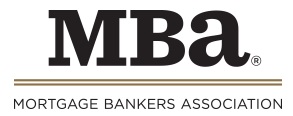WASHINGTON, DC – November 17, 2011 – (RealEstateRama) — Unemployment and other factors have caused many homeowners to involuntarily default on their mortgages. At the same time, falling home prices, the possibility of being underwater for many years and advice from certain influencers, or “mavens,” may have encouraged others to simply stop paying, with deleterious consequences in some markets, according to a study released today by the Mortgage Bankers Association (MBA).
The study entitled “Strategic Default in the Context of a Social Network: An Epidemiological Approach,” conducted by Michael J. Seiler of Old Dominion University, Andrew J. Collins of the Virginia Modeling, Analysis and Simulation Center and Nina H. Fefferman of Rutgers University and sponsored by MBA’s Research Institute for Housing America (RIHA), received the Governor’s Technology Award for 2011 for Virginia in the category of “Cross-Boundary Collaboration in Modeling & Simulation.” The study examines the factors that can lead to mortgage default, the role that influential members of our society play in people’s decision to stop paying their mortgage, and the impact on the broader housing market. The award was presented at the 2011 Commonwealth of Virginia’s Innovative Technology Symposium (COVITS) in Richmond on September 26, 2011.
“Recently, the overwhelming media coverage of the current financial crisis has made homeowners aware – or at least alerted them to become aware – of their equity position in their home,” said Michael Seiler. “While the merits of such a choice can and will continue to be debated, what is indisputable is that the possibility to strategically default has certainly been brought to the attention of current homeowners like never before, with potentially negative consequences for housing markets,” said Seiler.
Key findings from the study include:
• The study, citing other research, reviews the main drivers of default including unemployment, declines in home prices, life changes such as illness or divorce and other shocks to household income or wealth. Strategic default is a result of a borrower’s unwillingness to pay, even if able. It can be very difficult to determine whether a borrower is unable or unwilling to pay.
• Ideas are transmitted through the population in ways similar to those in which diseases are transmitted. Thus, they can be modeled in a similar manner. Certain corrective factors may lead some borrowers to be resistant to the temptation to strategically default, including the ability of lenders to pursue deficiency judgments, provisions of the tax code and bankruptcy laws.
• The model shows that real estate experts can influence market dynamics, but not in all cases. Markets are strong or weak due to fundamentals, however, markets in between can be pulled down or lifted up depending upon individual and expert behavior.
The study highlights those factors that distinguish an “economic default” (caused by hardship) from “strategic default” (selected as an option by homeowners who may be underwater on their mortgage), and the methods by which an idea such as “strategic default” can be transmitted through a population by contact with individuals and through social networks. Through simulation modeling, the authors demonstrate that because defaults and foreclosures lead to lower home prices, an epidemic of strategic defaults initiated by advice from those who might be considered experts can lead to the collapse of a housing market.
“Housing pundits share their expert opinion with a large audience on a frequent basis through the media. These social networks create the potential for much faster disease spread/cure than in the past. They can greatly impact mortgage markets through their use of behavioral advocacy. In fragile markets, advice by those considered to be experts, can result in a flood of strategic defaults, causing a contagious downward spiral of home prices and potentially a market collapse,” said Seiler.
“Whether by choice or necessity, as foreclosures increase, they have an increasingly negative impact on the price of the healthy homes around them,” said Selier. “One default does little to negatively impact the price of surrounding homes. However, as more and more mortgages in the neighborhood go into default, the negative impact is felt at an increasing rate. Much the same way as a disease spreads throughout a population, so, too, do decisions to ‘strategically’ default.”
Michael Fratantoni, MBA’s Vice President of Research and Economics added, “Research has clearly shown the factor that is most predictive of a mortgage default – a borrower’s inability to continue making mortgage payments. It is much more difficult to predict or even detect a strategic default – a borrower who has the ability to pay, but simply stops in expectation of a financial gain. This research illuminates the consequences of strategic defaults on housing markets, finding that they can be destabilizing, particularly in markets that are already on the edge. From a policy standpoint, the research supports the contention that opinion and information (or disinformation) can move markets. More specifically, that policymakers and Mavens have the ability to stabilize or de-stabilize markets.”
To access a copy of the report, please visit the RIHA website at www.housingamerica.org.
###
The Mortgage Bankers Association (MBA) is the national association representing the real estate finance industry, an industry that employs more than 280,000 people in virtually every community in the country. Headquartered in Washington, D.C., the association works to ensure the continued strength of the nation’s residential and commercial real estate markets; to expand homeownership and extend access to affordable housing to all Americans. MBA promotes fair and ethical lending practices and fosters professional excellence among real estate finance employees through a wide range of educational programs and a variety of publications. Its membership of over 2,200 companies includes all elements of real estate finance: mortgage companies, mortgage brokers, commercial banks, thrifts, Wall Street conduits, life insurance companies and others in the mortgage lending field. For additional information, visit MBA’s Web site: www.mortgagebankers.org.














